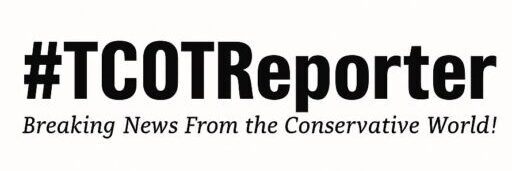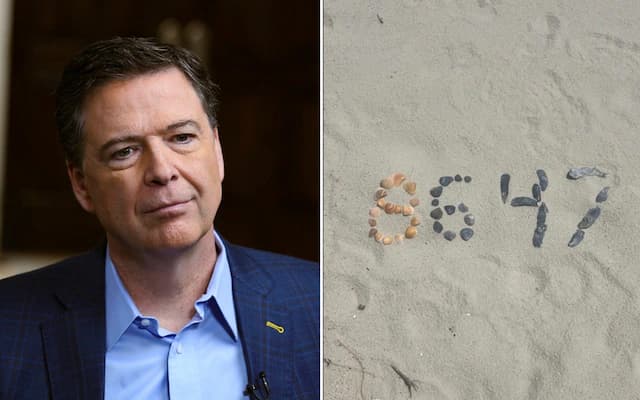Once hailed as the straight-arrow G-man who would rescue the FBI from politics, James Comey has now become its most vivid cautionary tale. His trajectory — from prosecutor to preacher, from arbiter of integrity to defendant in a federal courtroom — isn’t merely personal downfall. It’s the perfect case study in how Washington breeds people who mistake institutional self-regard for moral courage.
The Rise of Saint James
Comey’s career was built on precisely the kind of résumé Washington worships. William & Mary undergraduate, University of Chicago Law, clerkship, then straight into the prosecutorial bloodstream. In the Southern District of New York, he earned a reputation for cracking mob cases and chasing white-collar corruption. George W. Bush’s Justice Department promoted him to Deputy Attorney General, where he cultivated an image as the guy who would say no when everyone else said yes.
When Barack Obama appointed him FBI Director in 2013, it was sold as a bipartisan triumph: a Republican-leaning lawman who’d cleanse the Bureau’s image after post-9/11 overreach. In hindsight, that appointment reads less like a restoration and more like the beginning of the modern FBI’s theological crisis — when the nation’s premier law-enforcement agency fell in love with its own reflection.
The Email Era: When Independence Became a Brand
The 2016 election made Comey famous and then radioactive. His first public sermon on the “Hillary Clinton email matter” — not a criminal case, mind you, just a matter — managed to infuriate both parties in equal measure. Democrats accused him of sabotage; Republicans accused him of letting Clinton skate. Comey insisted it was proof of his fairness.
Inside the Beltway, though, “fairness” was a branding exercise. He’d found the sweet spot where the powerful can advertise their virtue while maintaining plausible deniability. His insistence on inserting himself into a live election investigation violated Justice Department norms so basic they’re printed on the lobby walls — yet he emerged convinced he was the adult in the room.
The Firing Heard Round Washington
On May 9, 2017, Donald Trump fired Comey. The move detonated Washington’s favorite fault line — “independence” versus “insubordination.” It also birthed the legend of Crossfire Hurricane, the counter-intelligence probe into alleged Trump-Russia ties that metastasized into a years-long media industry. Comey, now free from the constraints of office, seized the moment. He leaked his own memos, landed a multimillion-dollar book deal, and began his redemption tour: A Higher Loyalty.
It was a title begging for irony. The book’s message was clear — that Comey’s “higher loyalty” was to truth, not power. Yet every chapter doubled as an audition tape for cable news. The FBI’s culture of institutional self-regard had found its perfect avatar: a bureaucrat who believed he was saving democracy, one televised monologue at a time.
The Long Afterlife of a Fallen Director
After his firing, Comey reinvented himself as America’s conscience in exile. He taught, lectured, podcasted, and wrote op-eds about “restoring norms” — a curious crusade for someone whose own tenure had dynamited them. Meanwhile, his record began to curdle under scrutiny.
Inspector General reports flagged “significant errors” in the FISA process on his watch. Internal communications revealed selective briefings and inconsistent testimony. What once looked like principled independence began to look like bureaucratic opportunism — the tendency to choose whichever rule preserved one’s own legend.
The Indictment: When the Guardian Becomes the Accused
In September 2025, the mythology finally collapsed under its own weight. A federal grand jury in Virginia indicted James Comey on two counts: making false statements to Congress and obstructing a congressional proceeding. His legal team cried vindictive prosecution, arguing Trump’s public calls for accountability had poisoned the case. But the filings themselves told a more poetic story — that the former gatekeeper of truth had become ensnared by the same machinery he once wielded.
Even the judges seemed bewildered. One noted confusion over “dual versions” of the indictment — a bureaucratic glitch so on-brand it felt scripted by Kafka. In the swamp, process is always both weapon and shield.
The Seashell Cipher
Then came the moment that cemented Comey’s transformation from straight-laced Boy Scout to cryptic provocateur. Days before his indictment was unsealed, he posted a photo online: seashells arranged neatly in the shape of 8647. To most viewers, it was odd. To those familiar with the U.S. Criminal Code, it was unmistakable — those sections deal with attempted murder and threats against officials.
Critics saw it as a taunt, an incitement, or a coded message aimed squarely at Donald Trump. Comey’s defenders brushed it off as “artsy numerology,” but the timing — a week of sealed motions, whispers of charges, and his own public paranoia — made coincidence seem like the least plausible explanation. In the age of perpetual messaging, even his beach décor looked like psy-ops. The irony was rich: the man who once scolded Trump for “irresponsible rhetoric” was now communicating in riddles that half the country read as veiled menace.
The Theology of the Swamp
Comey’s greatest sin was never simple corruption. It was theological arrogance — the conviction that the system itself was good because he ran it. He embodied a class of bureaucratic clerics who see the federal apparatus as both cathedral and confessional. When they err, it’s “for the greater good.” When others err, it’s a constitutional crisis.
That mindset — the one that treats accountability as an affront to sacred institutions — is what turns public service into permanent power. It’s why the swamp doesn’t fear elections: it reproduces itself through the myth of its own indispensability. Comey didn’t invent that system. He just believed his halo could outshine it.
The Lesson
The Comey saga is not about one man’s hypocrisy; it’s about what happens when the bureaucracy starts believing its own press releases. He was the Bureau — until the Bureau turned on him. The hero of “integrity” became the case study in institutional rot, undone not by ideology but by hubris.
In Washington, loyalty to truth always loses to loyalty to narrative. And James Comey, the self-anointed moral compass of the Republic, is learning that the hard way — under oath.
Citations
- Politico – “Comey Indictment Motion Cites Vindictive Prosecution”
- Washington Post – “Comey Prosecution Raises Selective Enforcement Questions”
- New York Post – “Comey Seeks Dismissal of Charges”
- The Guardian – “Comey Pleads Not Guilty to Federal Charges”
- CBS News – “Judge Notes Dual Indictment Versions in Comey Case”
- PBS NewsHour – “Read the Full Indictment”
- Biography.com – “James Comey Biography”
- FBI.gov – “Director History: James B. Comey”


Pingback: John Brennan: The Swamp Rat Who Dug His Own Hole - #TCOT Reporter
Pingback: The Bureaucracy That Never Left - #TCOT Reporter